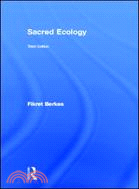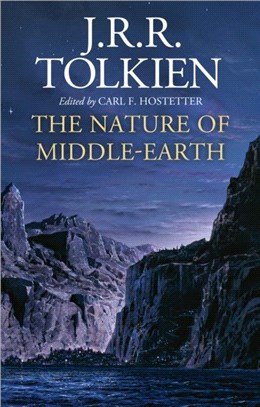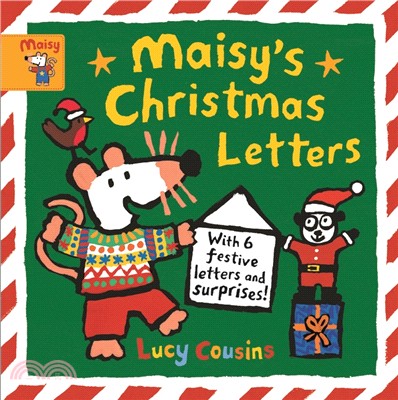Sacred Ecology
商品資訊
ISBN13:9780415517324
出版社:Routledge UK
作者:Fikret Berkes
出版日:2012/03/01
裝訂/頁數:平裝/392頁
規格:23.5cm*15.9cm*1.9cm (高/寬/厚)
版次:3
定價
:NT$ 2339 元優惠價
:90 折 2105 元
無庫存,下單後進貨(到貨天數約45-60天)
下單可得紅利積點:63 點
商品簡介
作者簡介
目次
相關商品
商品簡介
Sacred Ecology examines bodies of knowledge held by indigenous and other rural peoples around the world, and asks how we can learn from this knowledge and ways of knowing. Berkes explores the importance of local and indigenous knowledge as a complement to scientific ecology, and its cultural and political significance for indigenous groups themselves. This third edition further develops the point that traditional knowledge as process, rather than as content, is what we should be examining. It has been updated with about 150 new references, and includes an extensive list of web resources through which instructors can access additional material and further illustrate many of the topics and themes in the book.
.
.
作者簡介
Fikret Berkes is Distinguished Professor and Canada Research Chair at the Natural Resources Institute, University of Manitoba, Canada. His studies on community-based resource management have led to explorations of local and indigenous knowledge. He has authored some 250 scholarly publications and nine books, including Linking Social and Ecological Systems (Cambridge University Press, 1998) and Navigating Social-Ecological Systems (Cambridge, 2003).
目次
Chapter 1 Context of Traditional Ecological Knowledge. Defining Traditional Ecological Knowledge. Traditional Ecological Knowledge as Science. Differences: Philosophical or Political? Knowledge-Practice-Belief: A Framework for Analysis. Objectives and Overview of the Volume. Chapter 2 Emergence of the Field. Evolution and Differentiation of the Literature. Growth of Ecosystem-based Knowledge. Cultural and Political Significance for Indigenous Peoples. Questions of Ownership and Intellectual Property Rights. Practical Significance as Common Heritage of Humankind. Chapter 3 Intellectual Roots of Traditional Ecological Knowledge. Ethnobiology and Biosystematics: A Good Fit. More on Linguistics and Methodology: How to Get the Information Right. Exaggeration and Ethnoscience: The Eskimo Snow Hoax? Human Ecology and Territoriality. Integration of Social Systems and Natural Systems: Importance of Worldviews Chapter 4 Traditional Knowledge Systems in Practice. Tropical Forests: Not Amenable to Management? Semi-Arid Areas: Keeping the Land Productive. Traditional Uses of Fire. Island Ecosystems–Personal Ecosystems. Coastal Lagoons and Wetlands. Conclusions. Chapter 5 Cree Worldview "from the Inside". Animals Control the Hunt. Obligations of Hunters to Show Respect. Importance of Continued Use for Sustainability. Conclusions. Chapter 6 A Story of Caribou and Social Learning. "No One Knows the Way of the Winds and the Caribou". Cree Knowledge of Caribou in Context. Caribou Return to the Land of the Chisasibi Cree. A Gathering of the Hunters. Lessons for the Development of a Conservation Ethic. Lessons for the Question of Monitoring. Chapter 7 Cree Fishing Practices as Adaptive Management. The Chisasibi Cree System of Fishing. Subarctic Ecosystems: Scientific Understanding and Cree Practice. Three Cree Practices: Reading Environmental Signals for Management. A Computer Experiment on Cree Practice and Fish Population Resilience. Traditional Knowledge Systems as Adaptive Management. Lessons from Fisher Knowledge. Chapter 8 Climate Change and Indigenous Ways of Knowing. Indigenous Ways of Knowing and New Models of Community-Based Research. Inuit Observations of Climate Change Project. A Convergence of Findings. Significance of Local Observations and Place-Based Research. Indigenous Knowledge and Adaptation. Conclusions. Chapter 9 Complex Systems, Holism, and Fuzzy Logic. Rules-of-Thumb: Cutting Complexity Down to Size. Community-Based Monitoring and Environmental Change. Complex Systems Thinking. Local Knowledge and Expert Systems. A Fuzzy Logic Analysis of Indigenous Knowledge. Conclusions. Chapter 10 How Local Knowledge Develops: Cases from the West Indies. A Framework for Development of Local and Traditional Knowledge. Mangrove Conservation and Charcoal Makers. Dominican Sawyers: Developing Private Stewardship. Cultivating Sea Moss in St. Lucia. Rehabilitating Edible Sea Urchin Resources. Lessons from the Caribbean Cases. Conclusions. Chapter 11 Challenges to Indigenous Knowledge. Limitations of Indigenous Knowledge and the Exotic Other. Invaders and Natives: A Historical Perspective. Indigenous Peoples as Conservationists? "Wilderness" and a Universal Concept of Conservation. Adapting Traditional Systems to the Modern Context. Traditional Systems for Building Livelihoods in a Globalized Economy. Toward an Evolutionary Theory of Traditional Knowledge. Chapter 12 Toward a Unity of Mind and Nature. Political Ecology of Indigenous Knowledge. Indigenous Knowledge for Empowerment. Indigenous Knowledge as Challenge to the Positivist-Reductionist Paradigm. Making Scientific Sense of Indigenous Knowledge. Learning from Traditional Knowledge.
主題書展
更多
主題書展
更多書展今日66折
您曾經瀏覽過的商品
購物須知
外文書商品之書封,為出版社提供之樣本。實際出貨商品,以出版社所提供之現有版本為主。部份書籍,因出版社供應狀況特殊,匯率將依實際狀況做調整。
無庫存之商品,在您完成訂單程序之後,將以空運的方式為你下單調貨。為了縮短等待的時間,建議您將外文書與其他商品分開下單,以獲得最快的取貨速度,平均調貨時間為1~2個月。
為了保護您的權益,「三民網路書店」提供會員七日商品鑑賞期(收到商品為起始日)。
若要辦理退貨,請在商品鑑賞期內寄回,且商品必須是全新狀態與完整包裝(商品、附件、發票、隨貨贈品等)否則恕不接受退貨。
























